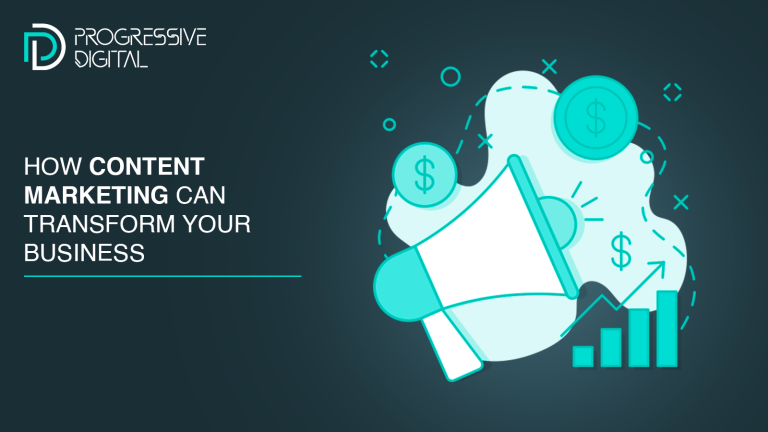Content marketing has become one of the most effective strategies for modern businesses to engage with their audience, build trust, and drive growth. Instead of relying on traditional marketing tactics like ads or cold outreach, content marketing focuses on providing value to potential customers through informative and engaging content.
But how exactly can it transform your business? Let’s dive into the key ways content marketing can make a difference and how companies are using it to gain a competitive edge.
1. Building brand awareness
One of the primary goals of content marketing is to increase brand visibility. By consistently producing valuable content, your brand becomes more recognizable and trusted by your target audience. Instead of bombarding consumers with ads, content marketing allows you to provide helpful information, tips, and insights that your audience is actively searching for.
Take, for example, HubSpot. Initially, they were a small startup in the marketing automation space. However, through a well-executed content strategy, HubSpot has become a leading authority on inbound marketing.
They regularly publish blog posts, create in-depth guides, offer free tools, and even host webinars on topics that their target audience is interested in. Over time, this has helped them build a massive audience and attract a steady flow of potential customers to their website.
2. Establishing authority and trust
Consumers are more likely to buy from brands they trust, and content marketing is an excellent way to establish that trust. By creating high-quality, informative content that helps your audience solve problems or gain insights, you position your brand as an expert in your industry.
Consider the strategy of Neil Patel, a digital marketing guru. Patel regularly shares detailed, actionable content on his blog that helps businesses improve their SEO, content strategies, and digital marketing efforts. His in-depth guides, case studies, and free resources have established him as a thought leader in the digital marketing space.
This trust leads to more business opportunities, consultations, and paid services because potential clients see him as an expert they can rely on.
3. Driving organic traffic and boosting SEO
One of the most significant benefits of content marketing is its ability to drive organic traffic to your website. When you create content that answers common questions or provides solutions to your audience’s pain points, it helps your website rank higher in search engines like Google. This not only increases visibility but also brings in highly targeted traffic.
A perfect example is Buffer, a social media management tool. Buffer has grown its business significantly through SEO-optimized content. Their blog posts, which cover social media tips, trends, and strategies, have consistently ranked well in search engines.
This has driven a large amount of organic traffic to their website, leading to increased sign-ups and customer conversions—all without relying heavily on paid advertising.
4. Engaging your audience
Content marketing isn’t just about creating content; it’s about engaging with your audience. Effective content encourages interaction, whether it’s through social media comments, shares, or direct inquiries. By engaging with your audience, you create a two-way dialogue that can build loyalty and trust.
Take GoPro as an example. Instead of focusing solely on their cameras, they encourage their customers to create and share their own content using GoPro products.
The user-generated content they promote on their social media channels creates a community around the brand, deepening customer engagement. By fostering this community-driven content strategy, GoPro has turned its customers into passionate advocates, driving both loyalty and sales.
5. Converting leads into customers
Content marketing can also be used to guide potential customers through the buyer’s journey, ultimately converting them into paying customers.
The process of nurturing leads with valuable content helps to build a relationship with potential buyers, moving them closer to making a purchase decision.
A great example of this is HubSpot’s lead generation strategy. They offer a range of free resources like templates, guides, and eBooks in exchange for visitors’ contact information. Once they’ve captured these leads, HubSpot nurtures them with tailored email campaigns, providing additional valuable content that answers their needs. By the time these leads are ready to make a purchase, they are more likely to choose HubSpot because of the trust and value the brand has already provided.
6. Generating long-term results
Unlike traditional marketing tactics, which often deliver short-term results, content marketing provides long-lasting value.
A well-written blog post, helpful video, or insightful guide can continue to attract traffic, leads, and sales for months or even years after it’s published. This makes content marketing a sustainable, long-term investment.
For instance, Moz, an SEO software company, created “The Beginner’s Guide to SEO” several years ago, and it remains one of the most referenced guides on the topic today. The content has brought continuous traffic to their website and established them as an authority in SEO. Because the content is evergreen—meaning it remains relevant over time—it continues to deliver value long after it was first published.
Content marketing has the potential to significantly transform your business by building brand awareness, establishing authority, driving organic traffic, engaging with your audience, converting leads into customers, and generating long-term results. By taking inspiration from companies like HubSpot, Neil Patel, Buffer, GoPro, and Moz, you can see how a strategic approach to content marketing can create meaningful growth for your brand.







